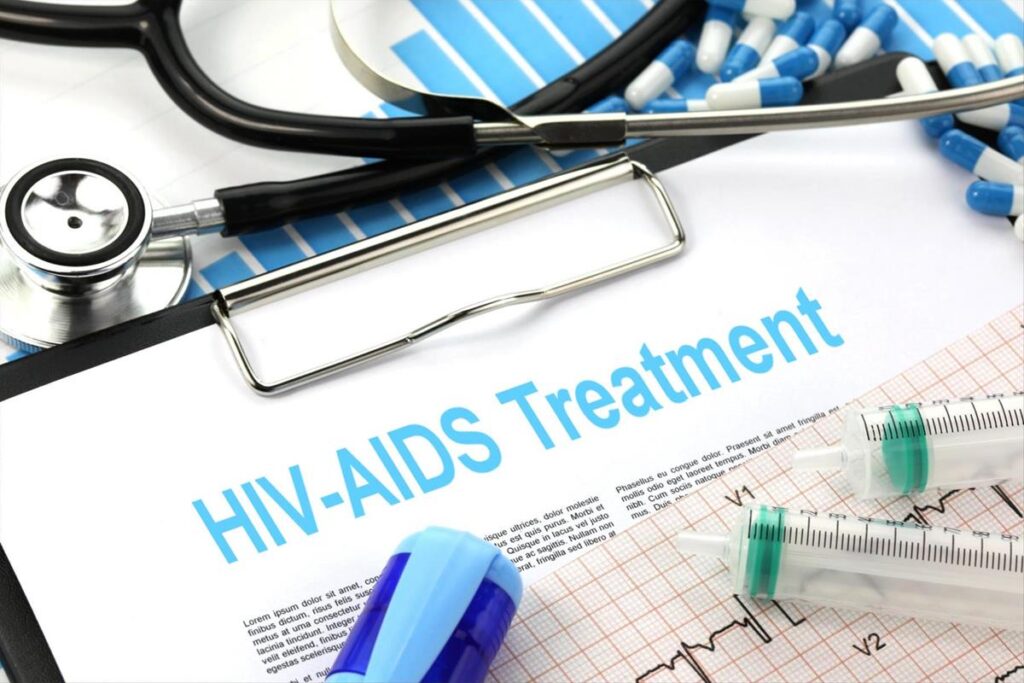Human Immunodeficiency Virus has killed an estimated 36.3 million people globally, about 37 million people are currently infected with the virus with 25 million of that number from Subsaharan Africa. (Source WHO).
What is HIV?
Human Immunodeficiency Virus targets the immune system to weaken its defences against diseases and infections and cancers that a healthy person’s immune system could easily ward off. This leaves the infected person vulnerable to different opportunistic ailments like Tuberculosis, cryptococcal meningitis, severe bacterial infections, and cancers such as lymphomas and Kaposi’s sarcoma.
What is AIDs?
Acquired Immunodeficiency Syndrome is an advanced stage of HIV if not treated. At this point, the person’s immune system is too weak to defend from any diseases giving rise to so many opportunistic diseases.
How is HIV Transmitted?
HIV is transmitted through the exchange of body fluids from an infected person to an uninfected person, blood, semen and vaginal secretion and breast milk are major channels through which the virus spreads.
Risk Factors;
Certain practices increase the probability of being infected with HIV, they include;
- Having unprotected anal or vaginal sexual intercourse.
- Having multiple sexual partners.
- Receiving unsafe injections.
- Sharing contaminated injections, syringes and drug solutions.
- Receiving unsafe/untested blood, organ transplant.
- Using unsterilized piercing and cutting objects, razors etc.
- Experiencing accidental needle stick injuries, including among health workers.
What are the stages of HIV?
There are four stages of progression of the virus if left untreated;
- Stage 1 – Infection: on infection, the virus would keep replicating itself within its host’s body. Most often there are no symptoms at this stage. But sometimes the infected person’s immune system would try to fight back by developing antibodies (seroconversion). Most often a flu-like symptom like headache, sour throat and rash.
- Stage 2 – Asymptomatic: Within this stage of HIV infection, the infected person shows no outward symptoms and develops no health challenges relating to HIV. this stage can last from between 8-10years.
- Stage 3 – Symptomatic: At this stage, the immune system of the host is greatly weakened. As such he develops mild symptoms at first then they gradually worsen as opportunistic diseases begin to take advantage of the weak immune system. Some symptoms noticed at this stage that get worse includes; weight loss, sores in the mouth, tuberculosis, cancers etc.
- Stage 4 – Full-blown AIDs: At this stage, the viral load is greatly increased and the CD4 count is low or below 350. At this stage the occurrence of different opportunistic diseases increases.
How is HIV diagnosed?
HIV can be diagnosed with a blood test in a laboratory or a health facility. Also, there exist self-testing kits that give the result immediately. But it is important to note that one single test is not enough as a confirmatory test is required.
Can HIV be cured?
HIV has no cure at this time, but there are Anti-retroviral Therapies that help the infected person live a long and healthy life. This therapy must be started immediately after a positive diagnosis of HIV.
ART help lower the viral load and prevent transmission of the HIV virus to uninfected persons especially if the drugs are taken correctly. They do not cure HIV as there is no known cure for the virus yet.
What are the drugs used to treat HIV?
Several antiretroviral drugs exist and they function differently to reduce the viral load in an infected person. They are classified into six, Doctors advise patients to take a cocktail of these drugs or at least more than one.
- Fusion Inhibitors: These classes of drugs work by blocking HIV from entering a healthy cell. Fusion inhibitors include;
- Enfuvirtide
- Fuzeon (T-20)
- Integrase Inhibitors: Also known as Integrase Strand Transfer Inhibitors, stop the HIV from making copies of itself by attaching itself to a healthy cell’s DNA.
- Bictegravir.
- Cabotegravir.
- Dolutrgravir.
- Elvitegravir.
- Raltegravir.
- Protease Inhibitors: These Drugs help by blocking the protein the virus needs to replicate itself;
- Atazanavir.
- Darunavir.
- Indinavir.
- Lopinavir + Ritonavir
- Saquinavir
- Nucleoside Reverse Transcriptase Inhibitors: They force the virus to use faulty building blocks in order to stop it from replicating itself;
- Abacavir
- Lamivudine.
- Zidovudine
- Didanosine
- Stavudine
- Non-Nucleoside Reverse Transcriptase Inhibitors: These drugs bind to a specific protein as such preventing the virus from replicating.
- Etravirine
- Doravirine
- Delavirdine
- Rilpivirine
- gp120 Attachment inhibitor: This is a relatively new drug, it is used for patients that other types of drugs have not yielded the desired result. It targets the glycoprotein 120 on the virus and prevents it from attaching itself to the infected person’s T-cells.
- Fostemsavir
- CCR5 Antagonist: Works like the Fusion inhibitor by blocking the virus from attaching itself to the healthy cells. But does this in a different way from the fusion inhibitors.
- Maraviroc
How long should the drugs be taken?
Since HIV has no cure, the medications would be taken for life. Although as technology keep advancing the more knowledge is gained about the virus, single shots dosage that could last up to three months is being developed. But until then the medications should be taken daily.
How Can HIV be prevented?
Several measures can be adopted to prevent HIV.
- Not sharing needles.
- Avoiding unsterilized piercing and cutting tools.
- Abstinence from sex.
- Proper use of Condoms can equally help to prevent HIV.
- Pre-exposure prophylaxis can be taken to prevent HIV.
- Also, post-exposure prophylaxis should be taken after possible exposure to the virus.
- For women infected with HIV, it is advised not to breastfeed their baby to avoid transmission from mother to child.

